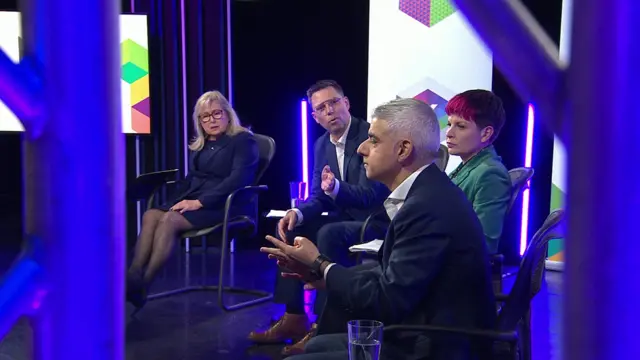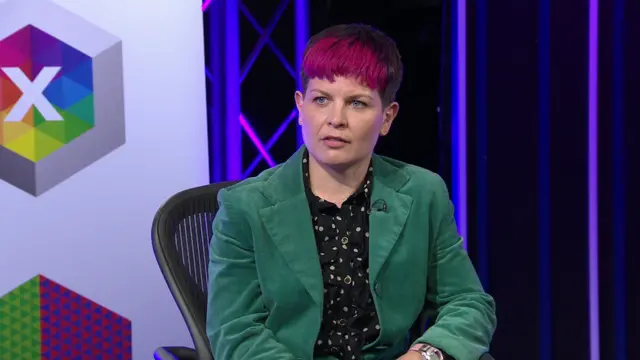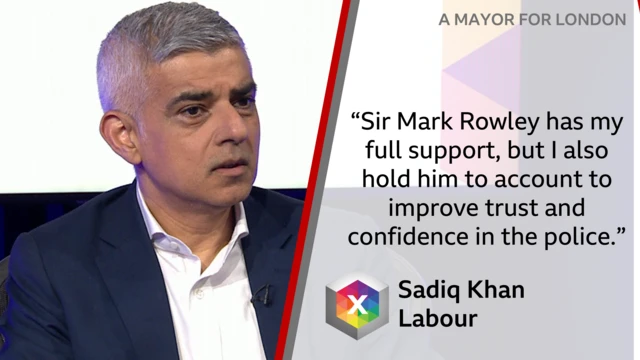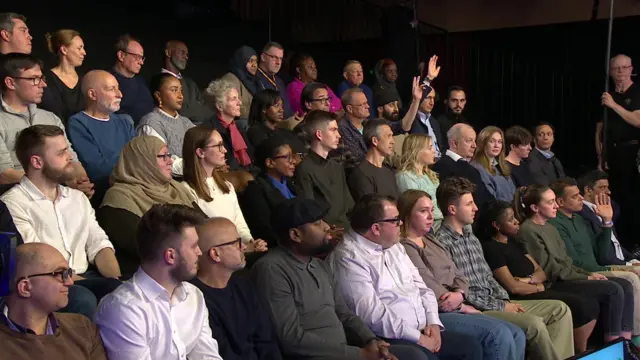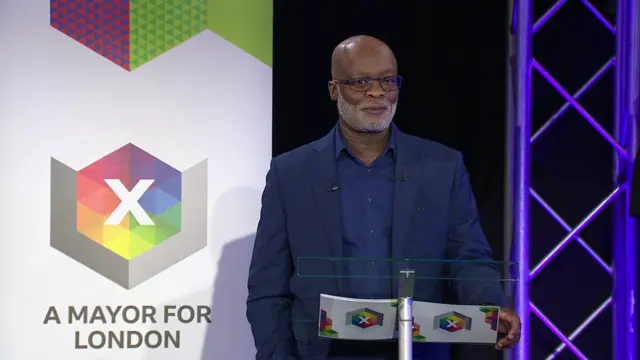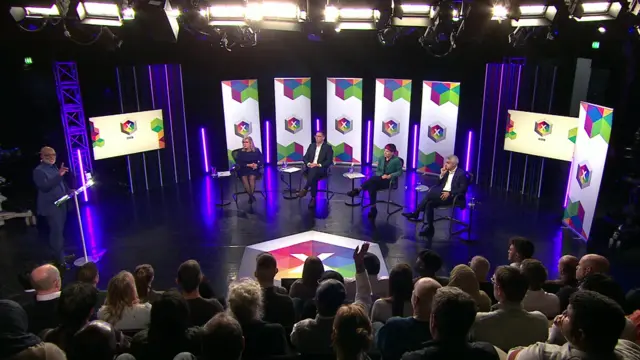Do women feel safe on the street?published at 20:21 BST 25 April 2024
The conversation now turns to violence against women and how they can feel better protected.
Garbett says it's a “failure” that the Met does not currently record whether a crime has been motivated by the hatred of women, which makes females feel like “they aren’t heard”.
"We know that women really don't trust the Metropolitan Police."
